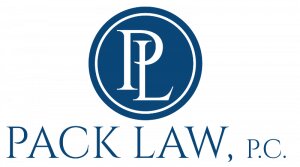Best Creditor Lawyers in Houston
Share your needs with us, get contacted by law firms.
Free. Takes 2 min.
List of the best lawyers in Houston, United States
About Creditor Law in Houston, United States
Creditor law in Houston, United States, refers to the legal rules and processes governing the rights and obligations of creditors-people or institutions that are owed money by individuals or businesses in debt. The Houston area, being part of Texas, operates under both federal and state laws that regulate issues like debt collection, bankruptcy, repossession, garnishment, and collections lawsuits. This field of law ensures that creditors can pursue what they are owed while also balancing the protections provided to debtors under both Texas and federal law.
Why You May Need a Lawyer
Many people in Houston seek legal help with creditor issues when they are attempting to collect a debt, enforce a judgment, or navigate complex rules surrounding debt collection. Common situations where legal assistance is important include:
- Recovering money from individuals or businesses that have failed to pay loans or services rendered
- Enforcing judgments secured through lawsuits
- Pursuing repossession of vehicles or other secured assets
- Dealing with bankruptcy filings by debtors
- Navigating state and federal restrictions on debt collection practices
- Responding to disputes or counterclaims from debtors
- Ensuring compliance with the Fair Debt Collection Practices Act (FDCPA) and Texas Debt Collection Act
- Recovering delinquent accounts in accordance with all applicable laws
An attorney can help creditors maximize their chances of recovery while staying within the legal boundaries set by local, state, and federal laws.
Local Laws Overview
Houston creditor law is influenced by a combination of Texas statutes and federal regulations. Key laws and aspects to be aware of include:
- Texas Debt Collection Act: This law governs how both original creditors and collection agencies must conduct themselves, providing guidelines on communication and prohibited activities.
- Fair Debt Collection Practices Act (FDCPA): A federal law that applies to third-party debt collectors, restricting unfair, deceptive, or abusive collection tactics.
- Statute of Limitations: In Texas, most debt collection lawsuits must be filed within four years from the date of default.
- Repossession Rules: Creditors have legal rights to repossess secured property (like vehicles) if borrowers default, but must do so without breaching the peace.
- Wage Garnishment Limitations: Texas law generally prohibits wage garnishment for consumer debts, except for court-ordered child support, taxes, and student loans.
- Judgment Enforcement: Creditors can seek to enforce court judgments by levying non-exempt property or placing liens, but some assets are protected under Texas exemptions.
- Bankruptcy Laws: Bankruptcy filings may limit or halt collection efforts through the automatic stay provision and determine how much, if any, of a debt can be recovered.
Understanding these laws is crucial for creditors operating in Houston to ensure effective and lawful recovery of debts.
Frequently Asked Questions
What is the statute of limitations for collecting a debt in Houston, Texas?
In Texas, creditors generally have four years from the date a debt became overdue to file a lawsuit seeking collection.
Can a creditor garnish my wages in Houston for a consumer debt?
Typically, no. Texas law prohibits wage garnishment for most consumer debts, except for certain court-ordered obligations like child support, taxes, or student loans.
What property can a creditor take to satisfy a judgment in Houston?
Creditors can target non-exempt property, such as non-homestead real estate, vehicles not protected by exemptions, or bank accounts. Texas law protects a homestead, certain personal property, and retirement accounts.
How does bankruptcy affect a creditor's ability to collect a debt?
When a debtor files for bankruptcy, the automatic stay halts most collection activities. Creditors must then seek relief through the bankruptcy court to collect or protect their interests.
What actions are prohibited under the Texas Debt Collection Act?
Prohibited actions include threats of violence, harassing calls, misrepresentations, and attempting to collect amounts not authorized by law or agreement.
Can creditors repossess cars or other collateral in Houston?
Yes, if the loan agreement grants this right and the borrower defaults. However, the repossession must occur without breaching the peace or entering locked premises without permission.
What is required to sue someone for a debt in Houston?
The creditor must have proof of the debt, evidence of default, and file a lawsuit within the statute of limitations. Legal representation is often beneficial due to the technical requirements.
Are debt collectors and original creditors held to the same standards?
Original creditors must comply with Texas law, while third-party debt collectors are subject to both Texas law and federal law like the FDCPA, which imposes additional restrictions.
Can a creditor contact others about a debtor's owed money?
Generally, creditors may not disclose debt details to others except certain parties, and contact with third parties is limited to locating the debtor under FTC and Texas rules.
What steps can a creditor take if a debtor moves out of Texas?
Creditors can still pursue debts against out-of-state debtors, but may need to domesticate court judgments in the debtor's new state for enforcement. Legal counsel is often necessary for multistate collections.
Additional Resources
If you need further information or assistance regarding creditor law in Houston, consider reaching out to these organizations and resources:
- Texas Office of Consumer Credit Commissioner - Offers information on debt collection and financial regulations.
- Texas Attorney General’s Office - Provides resources and complaint mechanisms for consumer and creditor issues.
- Houston Bar Association - Can help connect you with qualified attorneys experienced in creditor law.
- Southern District of Texas Bankruptcy Court - For matters involving bankruptcy cases and creditor filings.
- Federal Trade Commission (FTC) - For guidance on federal debt collection standards and reporting violations.
Next Steps
If you need legal assistance related to creditor issues in Houston, the following steps can help you get started:
- Gather all relevant documents, such as contracts, payment records, correspondence, and any court notices.
- Outline the details of your issue to present a clear overview to a potential attorney.
- Research local attorneys who specialize in creditor law by consulting the Houston Bar Association or searching for reputable law firms with creditor law experience.
- Schedule a consultation to discuss your situation, possible outcomes, and the attorney’s approach.
- Ask about fees, timelines, and any actions you should or should not take while your case is being evaluated.
- Follow your attorney’s advice to maximize your chances of a favorable outcome and ensure compliance with all applicable laws and regulations.
Professional legal guidance is the best way to protect your rights and interests as a creditor in Houston. Taking action early can often prevent larger issues and improve the recovery of debts owed to you or your business.
Lawzana helps you find the best lawyers and law firms in Houston through a curated and pre-screened list of qualified legal professionals. Our platform offers rankings and detailed profiles of attorneys and law firms, allowing you to compare based on practice areas, including Creditor, experience, and client feedback.
Each profile includes a description of the firm's areas of practice, client reviews, team members and partners, year of establishment, spoken languages, office locations, contact information, social media presence, and any published articles or resources. Most firms on our platform speak English and are experienced in both local and international legal matters.
Get a quote from top-rated law firms in Houston, United States — quickly, securely, and without unnecessary hassle.
Disclaimer:
The information provided on this page is for general informational purposes only and does not constitute legal advice. While we strive to ensure the accuracy and relevance of the content, legal information may change over time, and interpretations of the law can vary. You should always consult with a qualified legal professional for advice specific to your situation.
We disclaim all liability for actions taken or not taken based on the content of this page. If you believe any information is incorrect or outdated, please contact us, and we will review and update it where appropriate.









